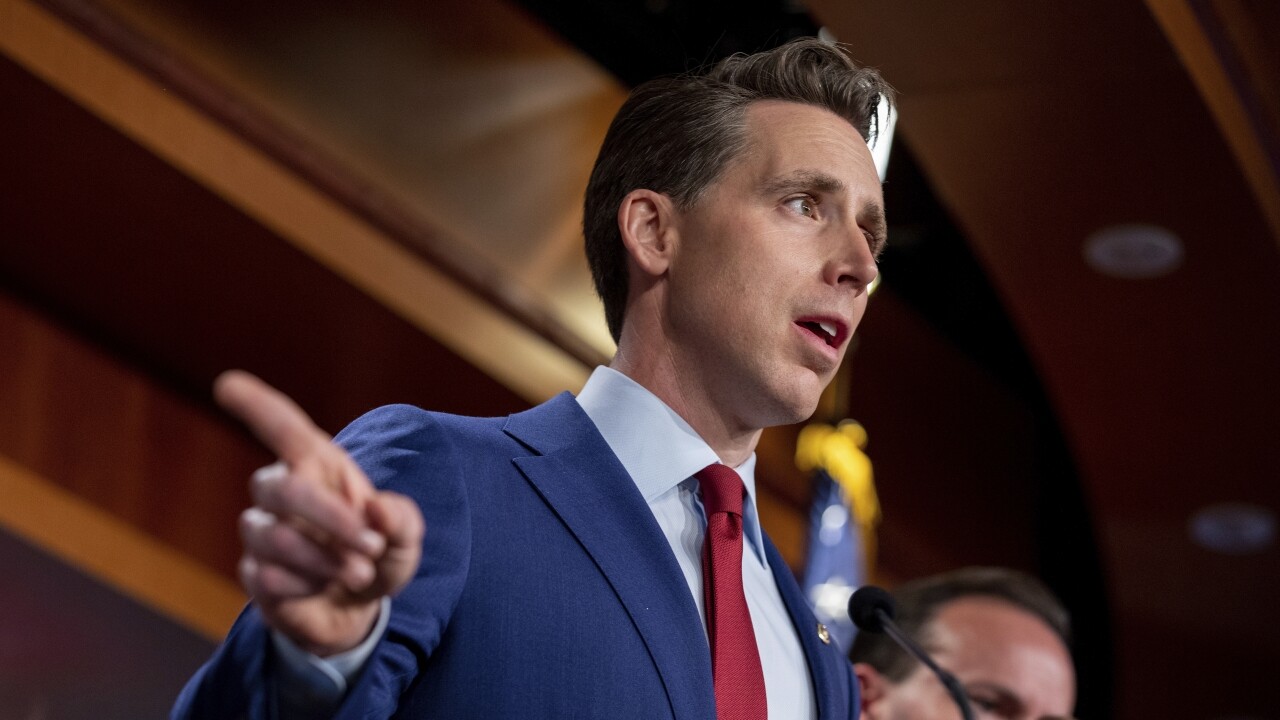A significant political rift has emerged on Capitol Hill, pitting former President Donald Trump against an erstwhile ally, Senator Josh Hawley of Missouri, over a proposed bill aimed at regulating congressional stock trading. This unexpected public confrontation highlights the complex dynamics within the Republican party and the contentious issue of financial transparency for lawmakers. Senator Hawley’s initiative, which has garnered considerable Democratic support, has surprisingly drawn the ire of the former president, leading to a heated exchange that has captured national attention.
Senator Hawley, typically a staunch supporter of Donald Trump, has found himself in an unusual position, facing a fierce rebuke from the former president. The Missouri senator has championed legislation designed to curb what many perceive as potential conflicts of interest among elected officials. His decision to co-sponsor a bill that could significantly alter how members of Congress manage their investments has been met with bipartisan applause from some, but a sharp condemnation from Mar-a-Lago.
The proposed legislation goes beyond merely restricting lawmakers; it includes stringent provisions that would require the President and Vice President to cease all stock trading immediately upon taking office. Furthermore, by 2029, these high-ranking officials would be mandated to divest from all stock holdings, aiming to create a clear separation between public service and personal financial gain. This comprehensive approach underscores the bill’s ambition to address concerns about insider trading and undue influence across the executive and legislative branches.
Despite the current political infighting, the concept of banning congressional stock trading enjoys a notable degree of bipartisan support within Washington. Public sentiment also largely favors greater financial accountability for elected officials, making this a popular issue across the political spectrum. However, turning this broad agreement into concrete legislation remains a significant challenge, often derailed by the intricate web of political alliances and rivalries.
President Trump, while previously signaling general support for banning congressional stock trading, swiftly pivoted to a scathing attack on Senator Hawley via his Truth Social platform. In a lengthy post, the former president derided Hawley as a “second-tier senator” and accused him of being a “pawn” for Democrats. Trump claimed that Democrats were using Hawley to “target” him, despite his administration’s “tremendous ACHIEVEMENTS and SUCCESS,” showcasing the personal and often unpredictable nature of his political interventions.
Trump’s strong reaction raises questions about the underlying motivations behind his criticism. While he often champions anti-establishment sentiments and has previously expressed support for similar financial regulations, his focus quickly shifted to attacking Hawley personally. This suggests a deeper political calculation, possibly aimed at maintaining his influence over the Republican party and signaling displeasure with any perceived disloyalty, even on issues he ostensibly supports.
Despite the bill’s widespread public appeal and its bipartisan origins, its path to becoming law remains highly uncertain. Senator Hawley was reportedly the only Republican senator to support the bill when it advanced from committee, indicating a significant hurdle in gaining broader GOP backing. Given President Trump’s continued outsize influence over Republican policy priorities in Congress, Senator Hawley himself had previously acknowledged that the legislation would require the former president’s endorsement to succeed, making his current opposition a critical blow.
The ongoing saga between Donald Trump and Josh Hawley vividly illustrates the complexities of modern political alliances and the power struggles within political parties. What began as a legislative effort to enhance transparency has evolved into a public spectacle, underscoring how personal rivalries and strategic positioning can overshadow policy objectives, even when there’s common ground on the issue at hand.






Leave a Reply